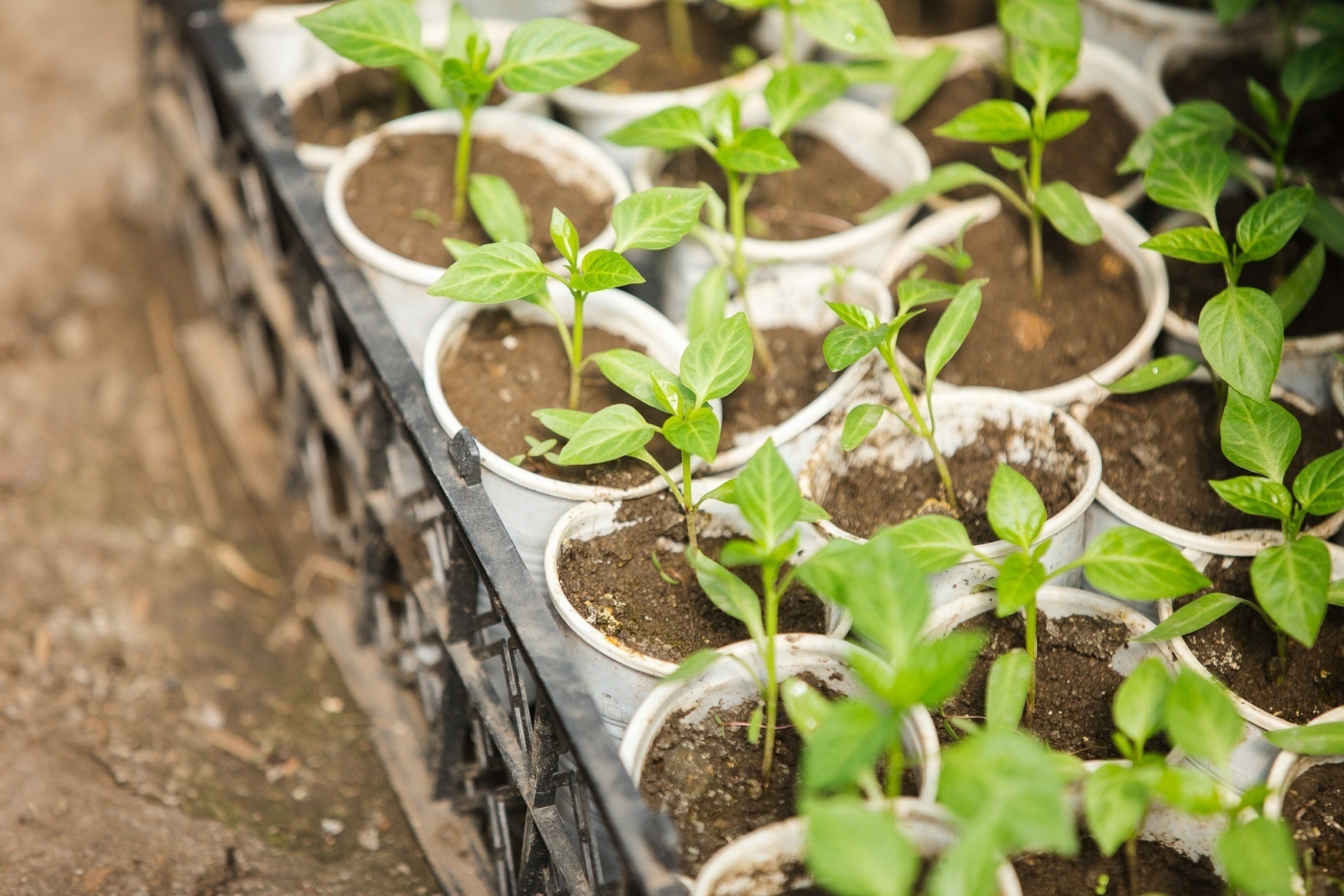
Should You Plant Seeds or Starts in Your Organic Garden?
In your organic garden planning, you need to make a planting schedule. In order to do that, you need to know which seeds to start ahead indoors and which to direct seed into the garden. If you don’t have the space or light to start plants inside, you will need to buy good quality starts at a reputable nursery.
n
Tags:
In your organic garden planning, you need to make a planting schedule. In order to do that, you need to know which seeds to start ahead indoors and which to direct seed into the garden. If you don’t have the space or light to start plants inside, you will need to buy good quality starts at a reputable nursery.
Direct seeding
Some plants need to be direct seeded because they do not like being transplanted. They either have tap roots or delicate root systems that do not like to be disturbed. These organic seeds are best sown right where you want them to grow. Some like cool weather and some need to wait until frost has passed. Always check the seed envelope for instructions. Prepare the beds with compost, and rake out rocks and large clumps of dirt. The soil should be fine enough for the smallest seed to successfully sprout. Plant from seeds:- Carrots
- Beets
- Radishes
- Peas
- Beans
- Parsnips
- Turnips
- Corn
- Sweet Peas
- Nasturtiums
- Morning Glories
- Sunflowers
- Poppies
Starts
Plants that need a long, frost-free season to mature need to be started indoors. They will get a jump-start of a couple months by the time you plant them outside. If you are growing your own starts, read the instructions on the seed packet. For instance, tomatoes need to be started 6-8 weeks before the average last frost date. Use a fine textured seedling mix of vermiculite, peat or coir, and compost. You can even make your own, but there are good quality packaged mixes available. Make sure your pots are clean and sterile. Label them with variety and date. Fill with soil, plant the seed as deep as the packet says, water in thoroughly, cover, and keep in a warm spot for a few days until germination. Then bring them out into the light, either a sunny window or under grow lights. If you are buying starts, be sure to shop at a reputable nursery. Big box stores do not have professional staff to tend plants. Know what you want and need. Plants should be a healthy green all over - yellow leaves could be a sign of disease, nutrient deficiency, or being root bound. Check for bugs, and holey or distorted leaves. Some stores are now labeling their starts that have been treated with neonicotinoids, pesticides that kill bees. Avoid those Plant from starts:- Tomatoes
- Peppers
- Eggplant
- Brussels Sprouts
- Melons
- Pumpkin
- Winter Squash
- Zucchini
- Cucumbers
- Parsley
- Most annual flowers
Either/or
Some plants are not fussy about how they are planted. Starting them early will give you a longer harvest from them, but they are just as happy being sown directly into the garden. If you start them early and direct seed them, you will have multiple harvests for a very long season.- Basil
- Spinach
- Lettuce
- Swiss Chard
- Broccoli
- Cabbage
Would you like to be the first to hear about our new products and more? Sign up for our Nature’s Path Newsletter.

